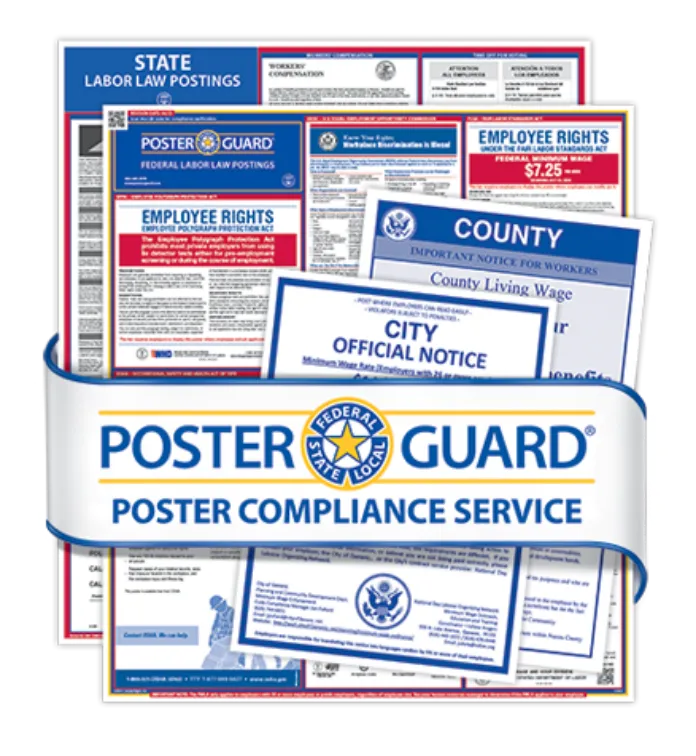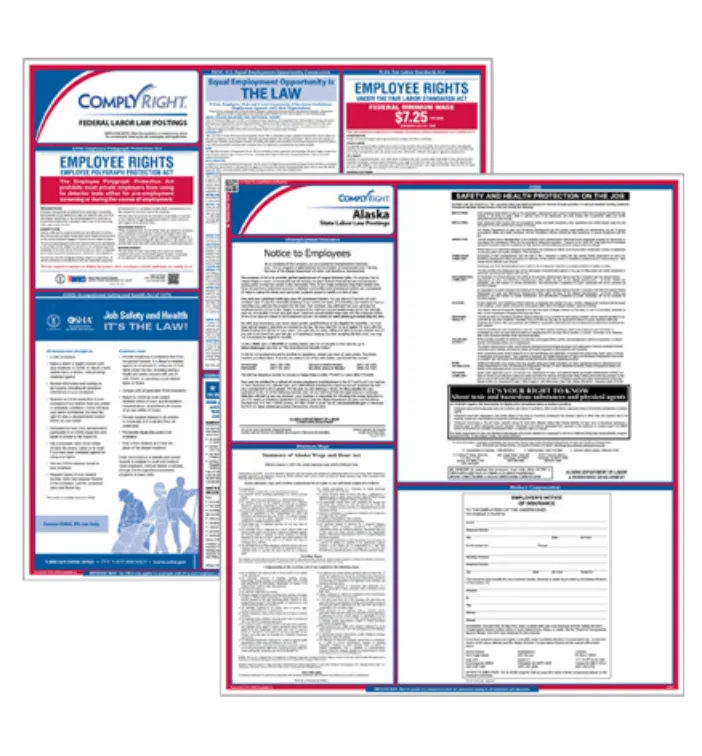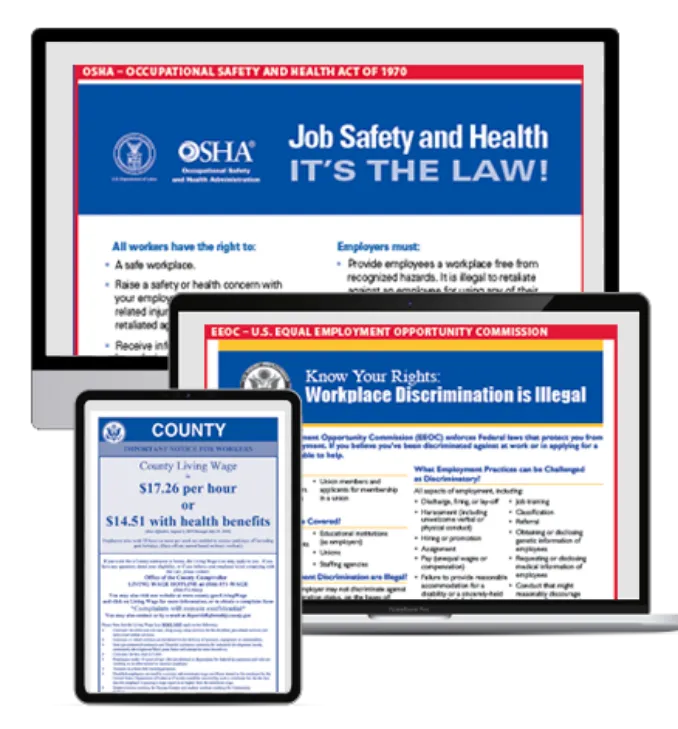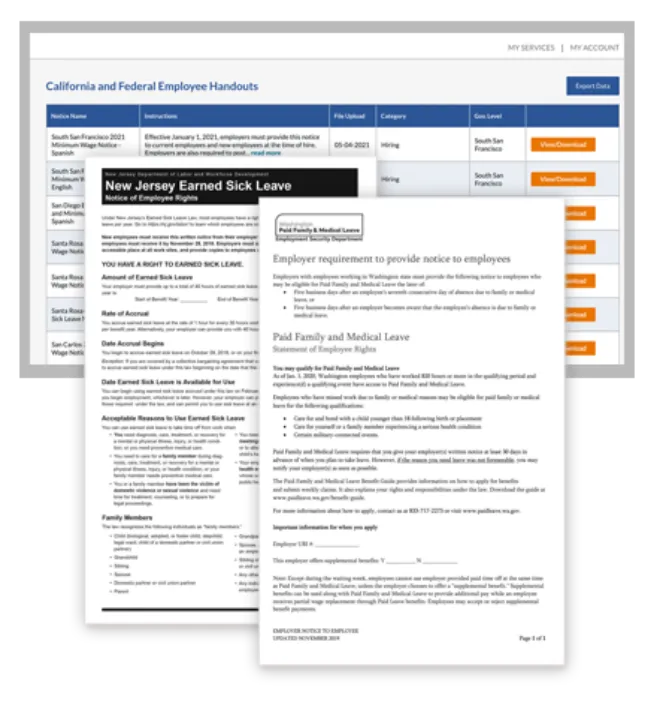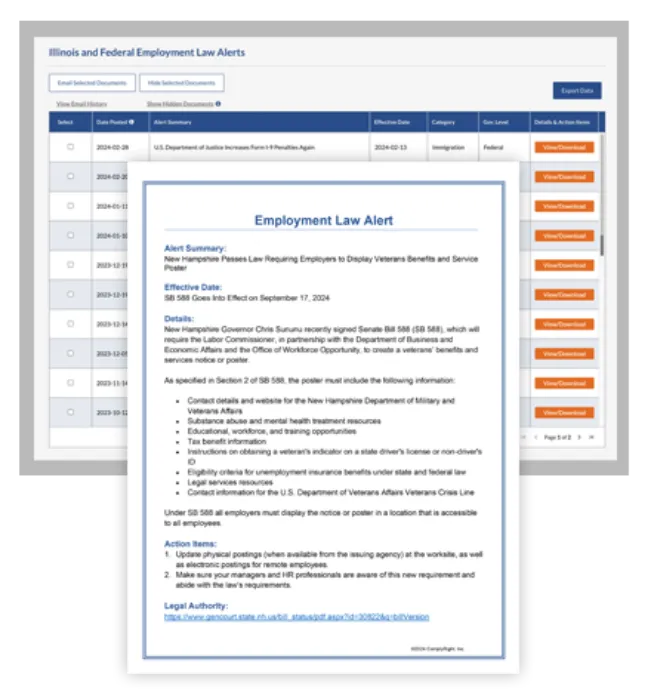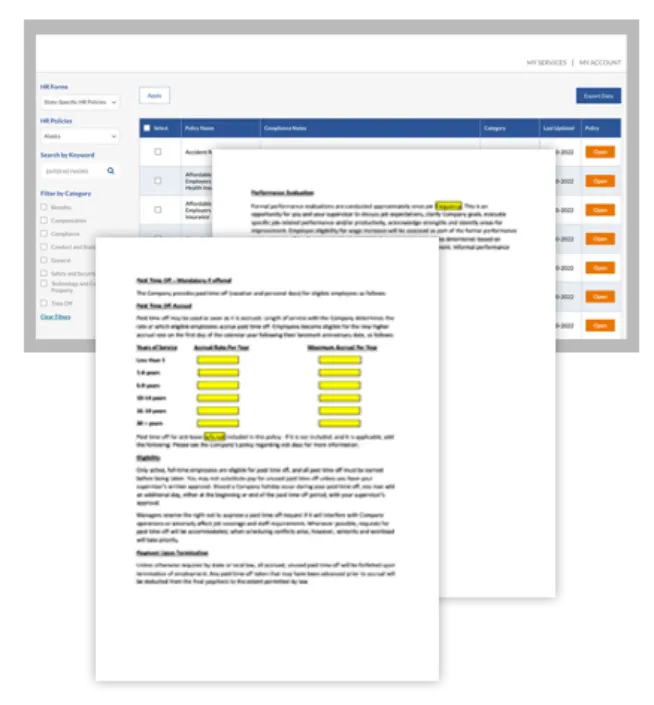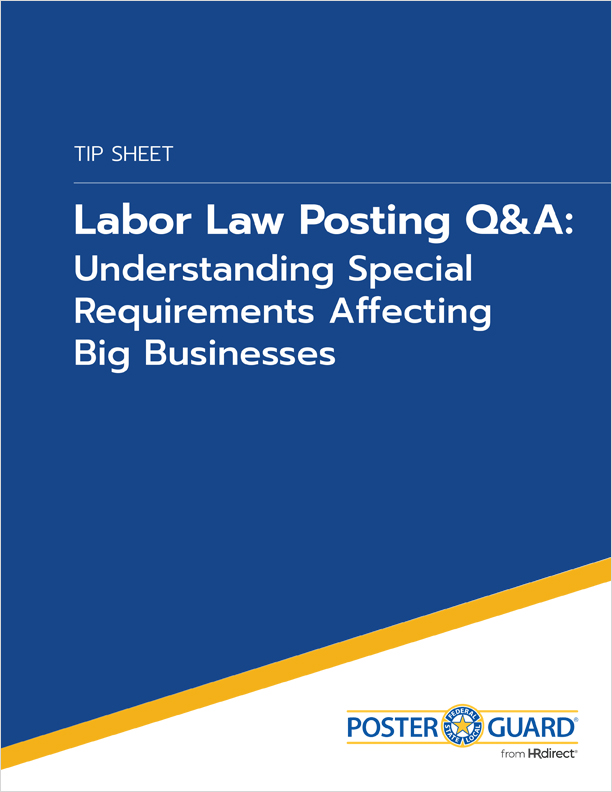With an eye toward a brighter future, many employers are eager to fill gaps in their staffing and bring on new talent. But the ongoing COVID-19 pandemic has taken its toll on the employment landscape.
Turnover is an ongoing concern, with nearly 55% of HR leaders reporting higher rates than before the pandemic. But just as employees are resigning at record rates (the “Great Resignation”), the labor market is shrinking and accessibility is strained. How can you counter these very real concerns when recruiting and hiring?
Not only must you adapt some of your methods for remote and/or onsite environments, but you must also weigh some critical legal factors. Here are five important considerations for business owners and hiring managers right now:
1) Start with a legally sound job posting
With today’s current situation, you’ll want to expand your reach by recruiting online and utilizing reputable job posting sites. As a crucial first step with virtual hiring, your job posting (or advertisement) should:
- Emphasize your company’s equal employment opportunity policy
- Spell out as clearly as possible what the job entails, including minimum qualifications and essential job functions
- Only include job title, general duties and responsibilities, necessary skills, experience and education, company background and how to apply
Be particularly careful to avoid discriminatory language, as federal laws prohibit any type of employer preference or bias based on sex, gender, race, color, religion, national origin, age, genetic information or disability. (For example, you wouldn’t want to say you’re looking for a new “salesman,” but, rather, a “sales representative.” Or, instead of “waitress,” you could say “wait staff” or “server” to be gender neutral.)
2) Thoroughly screen resumes
Having an orderly approach to screening resumes can save you time identifying qualified candidates. The main areas to focus on are:
- Work experience — Look for either an exact match to the current position or a related match with transferrable skills. Consider accomplishments and signs of career growth with increasing responsibility.
- Education — If the job requires a minimum level of education or specific certifications, check for those qualifications.
- Skills and abilities — Although these factors can be harder to review in a resume, it helps to look for relevant keywords for desired skills or competencies.
- Personality and values —You’re limited in this area, as well, but a resume that lists personal interests or a cover letter that emphasizes core beliefs can provide valuable clues on an individual’s character – and indicate how well they may fit into your company’s culture.
3) Test soft and hard skills with pre-employment tests
You’ve screened resumes and narrowed down the candidates with the greatest potential. At this point, pre-employment testing can help you further assess candidates and take some guesswork out of the decision-making process. You may choose to administer tests in two areas:
- Personality, attitudes and behaviors, such as work ethic, dependability, ambition and service orientation
- Skills, abilities and aptitude, such as vocabulary, math and reasoning, reading comprehension, problem solving and software proficiency
To stay on the right side of the law, only test for skills or traits that are directly related, and necessary, to the job. Take the time to define what you want to measure, and why you want to measure it. This will vary, for example if you’re hiring for a position in the financial and banking industry vs. warehouse shipping and receiving. To help you figure out what to test, identify the job’s primary tasks and duties and rank them by importance. Also, make sure you give the same test to every person being considered for a particular job.
4) Use a legally sound job application
It’s a smart business practice to have every online and onsite candidate complete a job application, even if they’ve submitted a resume. An attorney-approved application helps you gather the necessary job-related information without crossing into illegal territory. In addition to securing details on an individual’s skills, education, employment history and reasons for leaving previous jobs, your application should satisfy requirements for:
- ADA notices
- EEOC statement regarding the applicant’s ability to perform the job
- General non-harassment clause
- At-will employment
- Penalties for providing false information
- Authorization to check employment references
- Expiration date for how long application will remain on file
- Ban the box legislation and salary history, per state/local laws
By law, certain labor law posters must be made available to all prospective employees during the application process.
5) Make labor law postings visible to onsite and online applicants
Did you know you must provide certain postings for in-person or online job applicants? Of the six federally mandated labor law posters employers are required to display, four must be visible to job applicants. These include:
- Family and Medical Leave Act (FMLA) — Explains employee leave eligibility and benefits, as well as employer responsibilities
- Equal Employment Opportunity Commission (EEOC) — Covers anti-discrimination provisions and legally protected characteristics
- Employee Polygraph Protection Act (EPPA) — Describes the rules around lie detector tests in employment (even if you don’t use them)
- Uniformed Services Employment and Reemployment Rights Act (USERRA) — Addresses re-employment after military leave, anti-discrimination provisions and health insurance issues. (While not specifically mandated, this poster is recommended because the law applies to applicants).
For online job applicants, the Department of Labor (DOL) recommends that you include a notice near the application form that states: “Applicants have rights under Federal Employment Laws,” and include links to the required posters.
Get Expert Support and Solutions for Compliant Hiring
Before you embark on any hiring initiative, be certain you’re not overlooking applicant area posting requirements. The Poster Guard® Applicant Area Federal Poster Service provides laminated posters to display where in-person job applicants can see them while the Poster Guard® Online Applicant Posting Service includes electronic posters viewable via a web link you add to your website or online applicant system. Both offer expert legal monitoring and 12 months of automatic replacements/updates whenever mandatory changes occur.
You can also take advantage of Compliant Job Applications from HRdirect to gather relevant information from candidates and strengthen your non-discriminatory hiring practices. The attorney-developed applications only contain legally permitted questions, so you can be confident you’re in strict compliance with the most current federal and state hiring laws.

